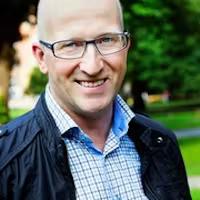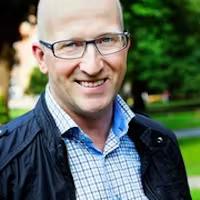Explore sustainable economic practices at individual, business, city, and national levels, drawing insights from Scandinavian initiatives.
Explore sustainable economic practices at individual, business, city, and national levels, drawing insights from Scandinavian initiatives.
This course examines the concept of greening the economy across four levels: individual, business, city, and nation. It draws lessons from Scandinavian initiatives since the 1970s, offering practical examples of sustainability solutions. The curriculum covers key issues in green economics, including consumption patterns, business strategies, urban planning, and national policies. Students will learn about measuring environmental impact, eco-labeling, green business practices, sustainable urban transformation, and policy instruments for promoting a green economy. The course emphasizes the interconnectedness of these levels and provides a comprehensive understanding of the challenges and opportunities in transitioning to a more sustainable economic model.
4.7
(593 ratings)
31,259 already enrolled
Instructors:
English
پښتو, বাংলা, اردو, 2 more
What you'll learn
Understand the concept and importance of a green economy
Analyze individual consumption patterns and their environmental impact
Explore green business strategies and sustainable production methods
Learn about urban planning for sustainability and green city initiatives
Examine national policies and instruments for promoting a green economy
Apply Scandinavian sustainability lessons to different global contexts
Skills you'll gain
This course includes:
5 Hours PreRecorded video
5 assignments
Access on Mobile, Tablet, Desktop
FullTime access
Shareable certificate
Closed caption
Get a Completion Certificate
Share your certificate with prospective employers and your professional network on LinkedIn.
Created by
Provided by

Top companies offer this course to their employees
Top companies provide this course to enhance their employees' skills, ensuring they excel in handling complex projects and drive organizational success.





There are 5 modules in this course
This course offers a comprehensive exploration of greening the economy, drawing lessons from Scandinavian experiences. It covers four key levels: individual choices, business strategies, sustainable cities, and national policies. Students will learn about consumption patterns, eco-labeling, green business practices, urban planning for sustainability, and policy instruments for promoting a green economy. The curriculum emphasizes practical examples and case studies from Scandinavia, providing insights into successful sustainability initiatives. Through five modules, learners will gain a holistic understanding of the challenges and opportunities in transitioning to a more sustainable economic model, preparing them to contribute to green economy initiatives in various contexts.
Introduction: what is a green economy and why is it important?
Module 1 · 2 Hours to complete
Individual choices
Module 2 · 2 Hours to complete
Business strategies
Module 3 · 3 Hours to complete
Sustainable cities
Module 4 · 3 Hours to complete
National policies
Module 5 · 2 Hours to complete
Fee Structure
Payment options
Financial Aid
Instructors
Associate Professor Specializing in Green ICT and Sustainable Transport
Dr. Peter Arnfalk is an Associate Professor at the International Institute for Industrial Environmental Economics (IIIEE) at Lund University. He earned his PhD in Industrial Environmental Economics from the IIIEE, completed a postdoctoral fellowship at NIMC in Tsukuba, Japan, and holds an MSc in Chemical Engineering. His primary research focus is on green ICT, particularly examining the impacts of technology applications on sustainability.
Expert in Eco-Labelling and Green Public Procurement
Dr. Charlotte Leire is a lecturer at the International Institute for Industrial Environmental Economics (IIIEE) at Lund University, Sweden, specializing in business management and environmental policy. Her primary focus areas include eco-labelling and green public procurement, where she has actively contributed to national initiatives promoting these practices, as well as international efforts led by the United Nations Environment Programme (UNEP). Dr. Leire is currently part of the project team for the Greening the Economy MOOC, which aims to educate and engage participants in sustainable practices.
Testimonials
Testimonials and success stories are a testament to the quality of this program and its impact on your career and learning journey. Be the first to help others make an informed decision by sharing your review of the course.
Frequently asked questions
Below are some of the most commonly asked questions about this course. We aim to provide clear and concise answers to help you better understand the course content, structure, and any other relevant information. If you have any additional questions or if your question is not listed here, please don't hesitate to reach out to our support team for further assistance.





